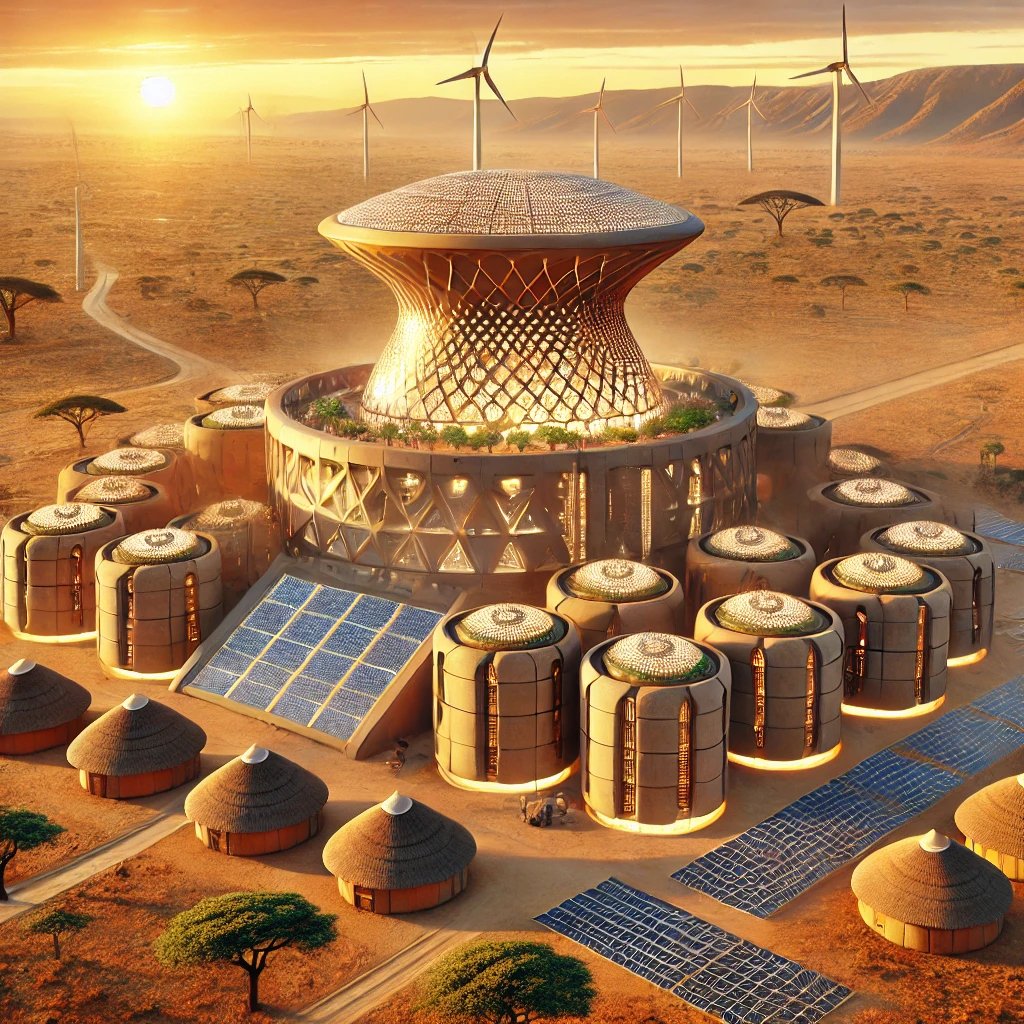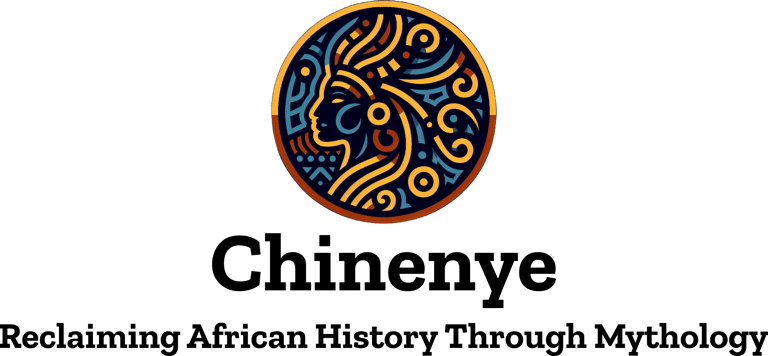How We Change The World: Correcting The Record on African History with The Afrodeities Codex
How African mythologies function as sophisticated knowledge systems that can transform education, technology, and global understanding. The Afrodeities manifesto.Why African mythology deserves academic recognition equal to Classical Studies. Discover the Afrodeities methodology for civilizational restoration.
Chinenye Egbuna Ikwuemesi
8/19/20257 min read


How We Change the World: Correcting the Record on African History and Resurrecting Its Mythologies
The Afrodeities manifesto: Why African mythological restoration is essential to global justice, technological sovereignty, and civilizational truth
The Problem: A Civilisation Erased by Design
For over 500 years, the world has learned a version of history that systematically erases African achievements, distorts African contributions, and dismisses African knowledge systems as primitive folklore. What's worse? It's institutional design.
The Scale of the Erasure
Consider what most people "know" about African history:
Ancient Egypt is taught as separate from Africa, its achievements attributed to mysterious external influences
African kingdoms like Mali, Songhai, Great Zimbabwe, and Axum are footnotes, if mentioned at all
African innovations in metallurgy, mathematics, medicine, and astronomy are absent from world history curricula
African philosophical systems are relegated to anthropology, while Greek philosophy dominates ethics courses
African spiritual systems are called "primitive religions", while equivalent traditions elsewhere become "world religions"
But perhaps most revealing is how African mythology has been systematically diminished. While Norse mythology inspires Marvel franchises, Greek mythology defines classical education, and Hindu mythology commands academic respect, African mythologies are dismissed as "folklore"—despite encoding equally sophisticated frameworks for law, governance, cosmology, ethics, and science.
The Mercator Map: Visual Metaphor for Systematic Distortion
The Mercator projection, which makes Africa appear smaller than Greenland when Africa is actually 14 times larger, serves as the perfect metaphor for this systematic distortion. For 455 years, every classroom has displayed a map that visually shrinks the continent that gave birth to human civilisation.
But the map distortion connects to something deeper: the same institutional networks that promoted false cartography also controlled education, museums, publishing, and cultural representation. Banks like Barclays and Lloyd's of London, built on slavery and colonial extraction, funded universities that taught African "primitiveness." Museums displayed stolen African artefacts as "curiosities" while presenting Greek pottery as "classical art."
This coordinated erasure wasn't just about justifying past exploitation—it was about preventing future African power.
The Black History Connection
The erasure of African civilizational achievements directly impacts how Black history gets taught globally. When Africa is presented as having no significant ancient civilisations, no sophisticated knowledge systems, no foundational contributions to human development, then:
Slavery becomes positioned as taking people from "primitive" societies to "advanced" ones
Colonial extraction gets framed as "development" rather than theft
Contemporary African challenges appear to stem from inherent deficits rather than systematic extraction
Diaspora achievements seem exceptional rather than expressions of inherited intellectual traditions
Pan-African unity becomes harder to build when shared civilizational pride is absent
When you erase the civilizational foundation, you distort everything built on it.
The Afrodeities Solution: Mythology as Civilizational Infrastructure
This is why the Afrodeities Project exists. We're not just preserving African stories, we're restoring African knowledge systems to their rightful place as sophisticated civilizational infrastructure.
What Makes African Mythology Different
African mythologies aren't just entertainment or moral instruction. They function as integrated knowledge systems encoding:
Legal frameworks: Yoruba Ifá contains detailed jurisprudence for conflict resolution
Scientific knowledge: Dogon cosmology includes accurate astronomical information about invisible celestial bodies
Governance models: Akan political mythology outlines sophisticated consensus democracy principles
Agricultural technology: Shona ancestral traditions encode sustainable farming practices
Medical knowledge: Egyptian mythological texts contain advanced surgical and diagnostic procedures
Economic principles: Various traditions encode sustainable resource management and wealth distribution
When these get dismissed as "folklore," entire civilizational knowledge bases disappear from human access.
The Afrodeities Methodology: Forensic Historiography
Through the Afrodeities Codex, we're developing what we call forensic historiography—using African mythological frameworks as analytical tools to decode historical patterns that European academic methods often miss.
For example:
Dogon binary system analysis reveals how apparently separate institutional decisions (banking, education, cartography) actually coordinate as hidden systems
Akan Sankofa methodology shows how understanding past knowledge architectures is essential for building future systems correctly.
Kemetic Ma'at principles provide frameworks for distinguishing truth from systematic deception.
Ubuntu epistemology demonstrates how knowledge systems connect across communities and time.
We're not just recovering mythology—we're recovering analytical technologies that African civilisations developed over millennia.
Codification as Restoration
Each work in the Afrodeities Codex serves multiple functions:
Historical restoration: Rebuilding accurate pictures of African civilizational achievements
Educational resource: Providing curriculum-ready materials for African-centered learning
Analytical framework: Offering methodological tools for understanding complex contemporary systems
Cultural technology: Reactivating knowledge systems for contemporary application
From Nigerian Mythology: The Shadow Sky to upcoming works on Kemetic, Bantu, and Sahelian traditions, we're building a comprehensive archive that treats African mythologies as the sophisticated intellectual traditions they are.
The Technology Connection: African Knowledge Systems for Digital Sovereignty
Our work extends beyond historical restoration into cutting-edge technology development. As outlined in our analysis of Infinite Value vs. Infinite Growth, African philosophical frameworks offer alternatives to extractive Silicon Valley models.
MythOS: African Epistemologies in AI
We're developing MythOS—Ekolu Tethys, an AI system trained on African epistemological frameworks rather than European logical models. This isn't just about representation—it's about technological sovereignty.
Current AI systems embed the same biases that created the Colonial Epistemic Complex:
Data extraction without consent (digital colonialism)
Algorithmic bias that perpetuates historical inequities
Centralised control by institutions with extractive business models
Knowledge hierarchies that privilege European analytical frameworks
MythOS offers an alternative: AI trained on Ubuntu principles (collective benefit), Ifá logic (complex multi-variable analysis), Kemetic Ma'at (truth-verification systems), and other African knowledge frameworks.
The Broader Tech Vision
African mythological principles suggest different approaches to:
Data ownership: Communities controlling their information rather than platforms extracting it
Algorithmic design: Systems optimising for collective well-being rather than individual profit maximisation
Network architecture: Distributed systems reflecting Ubuntu principles rather than centralised hierarchies
Innovation methodology: Ancestral wisdom informing technological development rather than technology displacing tradition
This isn't nostalgic—it's revolutionary. African knowledge systems offer frameworks for building technology that serves humanity rather than extracting from it.
The Global Impact: Why This Changes Everything
Educational Transformation
When African mythologies gain recognition as sophisticated knowledge systems equivalent to any global tradition, curricula worldwide must change:
African Mythology becomes an academic discipline alongside Classical Studies
African philosophical systems gain recognition in ethics and political science programs
African scientific traditions get integrated into STEM education
African governance models inform political studies and policy development
Cultural Sovereignty
Knowledge sovereignty enables cultural sovereignty. When African communities have access to their full intellectual inheritance, they can:
Build institutions rooted in ancestral principles rather than colonial frameworks
Develop technologies guided by African values rather than Silicon Valley extraction models
Create economies based on African concepts of value rather than Western capitalism
Educate children using African knowledge systems as primary frameworks
Global Justice
The systematic erasure of African knowledge systems has impoverished global understanding. Restoring these traditions benefits everyone:
Environmental solutions: African agricultural and ecological knowledge offers sustainable development models
Governance innovations: African consensus democracy and restorative justice provide alternatives to failing Western systems
Technological frameworks: African epistemologies suggest ethical approaches to AI and digital systems
Scientific methodologies: African holistic approaches complement Western reductionist methods
A world that recognises the full scope of human intellectual achievement is a world better equipped to solve contemporary challenges.
The Five-Stage Transformation Strategy
Stage 1: Consciousness Raising
Goal: Ensure global awareness of African civilizational contributions
Mass distribution of accurate African history content
Social media campaigns showing African achievements
Public education about systematic erasure patterns
Integration with existing social justice movements
Stage 2: Institutional Infiltration
Goal: Establish African knowledge systems within existing academic and cultural institutions
Peer-reviewed publication of African mythology scholarship
Museum exhibitions treating African artefacts as sophisticated cultural achievements
University course development in African mythological studies
Policy advocacy for curriculum reform
Stage 3: Platform Building
Goal: Create independent institutions that bypass traditional gatekeepers
Afrodeities Institute as a research and education hub
Digital platforms for African knowledge sharing
Publishing networks for African-centred scholarship
Technology development rooted in African principles
Stage 4: Curriculum Transformation
Goal: Centre African knowledge systems in educational frameworks globally
Teacher training in African epistemological frameworks
Textbook development using African analytical tools
Assessment methods reflecting African learning principles
Certification programs in African civilizational studies
Stage 5: Civilizational Rebalancing
Goal: African knowledge systems recognised as foundational to human development
Global policy informed by African governance principles
Technology designed using African ethical frameworks
Economic systems incorporating African value concepts
Environmental solutions based on African ecological knowledge
Why Now: The Historical Moment for African Knowledge Restoration
Digital Disruption of Information Control
Traditional gatekeepers (universities, publishers, museums) no longer control knowledge distribution. Digital platforms allow direct sharing of African knowledge without institutional filtering.
Global System Failures
Western frameworks are failing to address climate change, inequality, technological disruption, and social fragmentation. Alternative knowledge systems offer potential solutions.
African Continental Integration
The African Continental Free Trade Area and other pan-African initiatives create unprecedented opportunities for knowledge sharing and institutional coordination.
Diaspora Reconnection
Global African communities are actively seeking connection to ancestral knowledge systems, creating demand for authentic educational resources.
Generational Shift
Young people worldwide are questioning institutional narratives and seeking diverse knowledge frameworks.
The conditions for African knowledge restoration have never been more favourable.
The Afrodeities Commitment: Building the Infrastructure of Truth
Through the Afrodeities Project, we're building the intellectual infrastructure needed for this transformation:
Research and Documentation
Systematic codification of African mythological traditions
Forensic analysis of historical erasure patterns
Development of African analytical methodologies
Creation of educational resources and curricula
Technology Development
MythOS AI systems embedding African epistemologies
Digital platforms for African knowledge sharing
Blockchain systems for protecting indigenous intellectual property
Educational technologies rooted in African learning principles
Institution Building
Afrodeities Institute as a research hub
Publishing networks for African-centred scholarship
Educational partnerships with schools and universities
Policy advocacy for curriculum reform
Cultural Production
Literature and media celebrating African intellectual traditions
Public education campaigns raising consciousness about erasure
Artistic works translating mythological knowledge for contemporary audiences
International collaborations building global support networks
The Vision: A World That Remembers Correctly
Imagine a world where:
Children learn that human civilisation began in Africa and trace its development accurately
Universities offer degrees in African Mythology equivalent to Classical Studies
Technology companies use African ethical frameworks to guide AI development
Governments implement policies informed by African governance wisdom
Scientists integrate African knowledge systems with contemporary research methods
Artists draw from the full spectrum of human mythological traditions
This isn't utopian fantasy—it's an achievable transformation through systematic knowledge restoration.
The Colonial Epistemic Complex spent centuries building lies to protect extraction systems. We're building truths to enable liberation systems.
Every codex we create, every myth we restore, every framework we develop, every platform we build moves us closer to a world where African knowledge systems take their rightful place as foundational to human civilisation.
The ancestors encoded these knowledge systems for exactly this moment
Now we're learning to use them.
Join the Transformation
The work of correcting the record and resurrecting African mythologies requires coordinated effort across multiple fronts. Whether you're an educator seeking African-centred curricula, a technologist building ethical systems, a researcher studying African knowledge traditions, or simply someone committed to historical truth, there's a role for you in this transformation.
Because when Africa remembers its full civilizational inheritance, the entire world benefits.
The mythology was never legend—it was law. And memory is a strategy for survival.
Explore the Afrodeities Codex: Nigerian Mythology: The Shadow Sky | Meet the Orisas | The Technology Vision
Learn more about African mythological restoration at Afrodeities.org
Reframing African History by Reclaiming African Mythology
Restoring African mythology through innovative storytelling.
chinenye@chinenye.co.uk
© 2025. All rights reserved.
